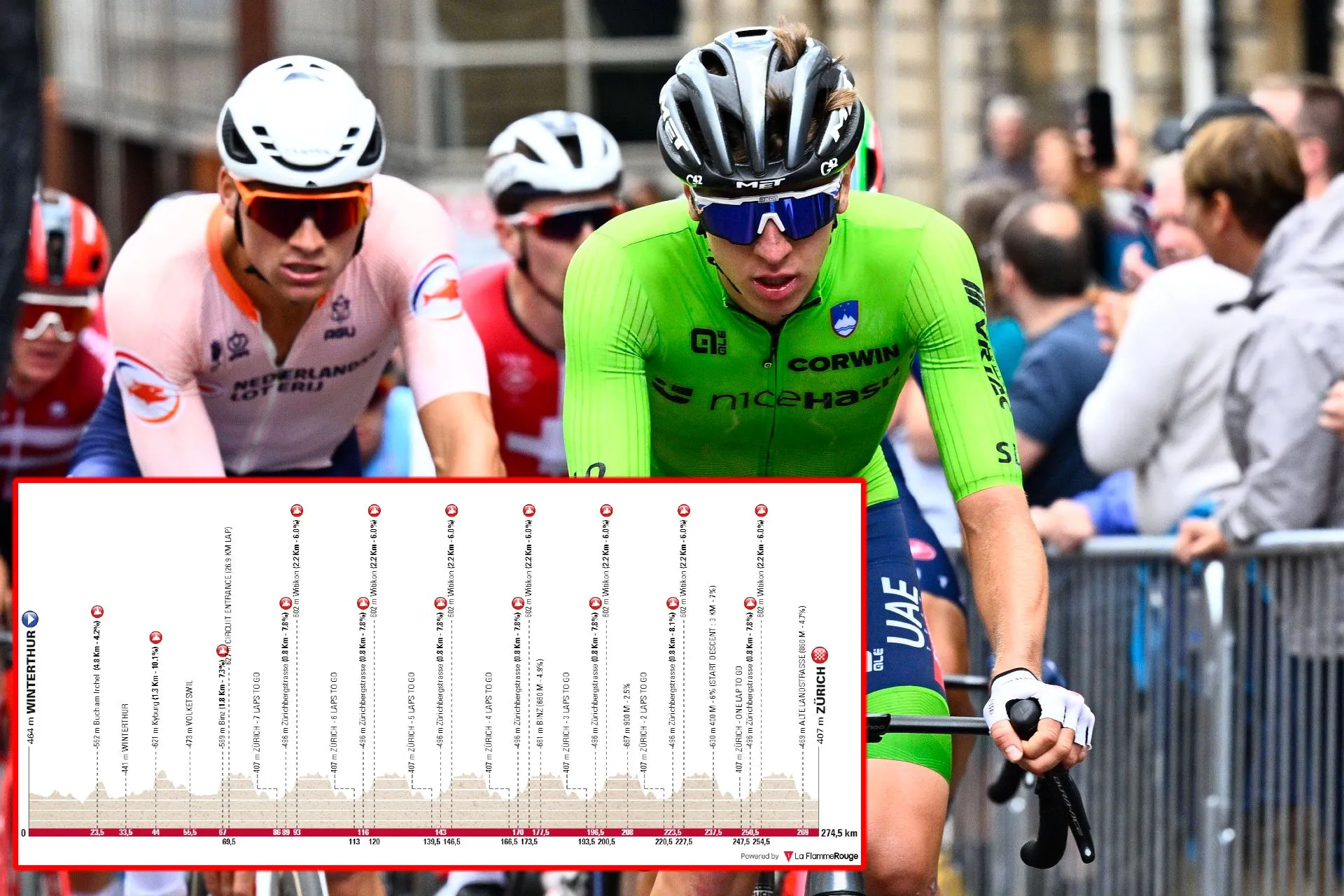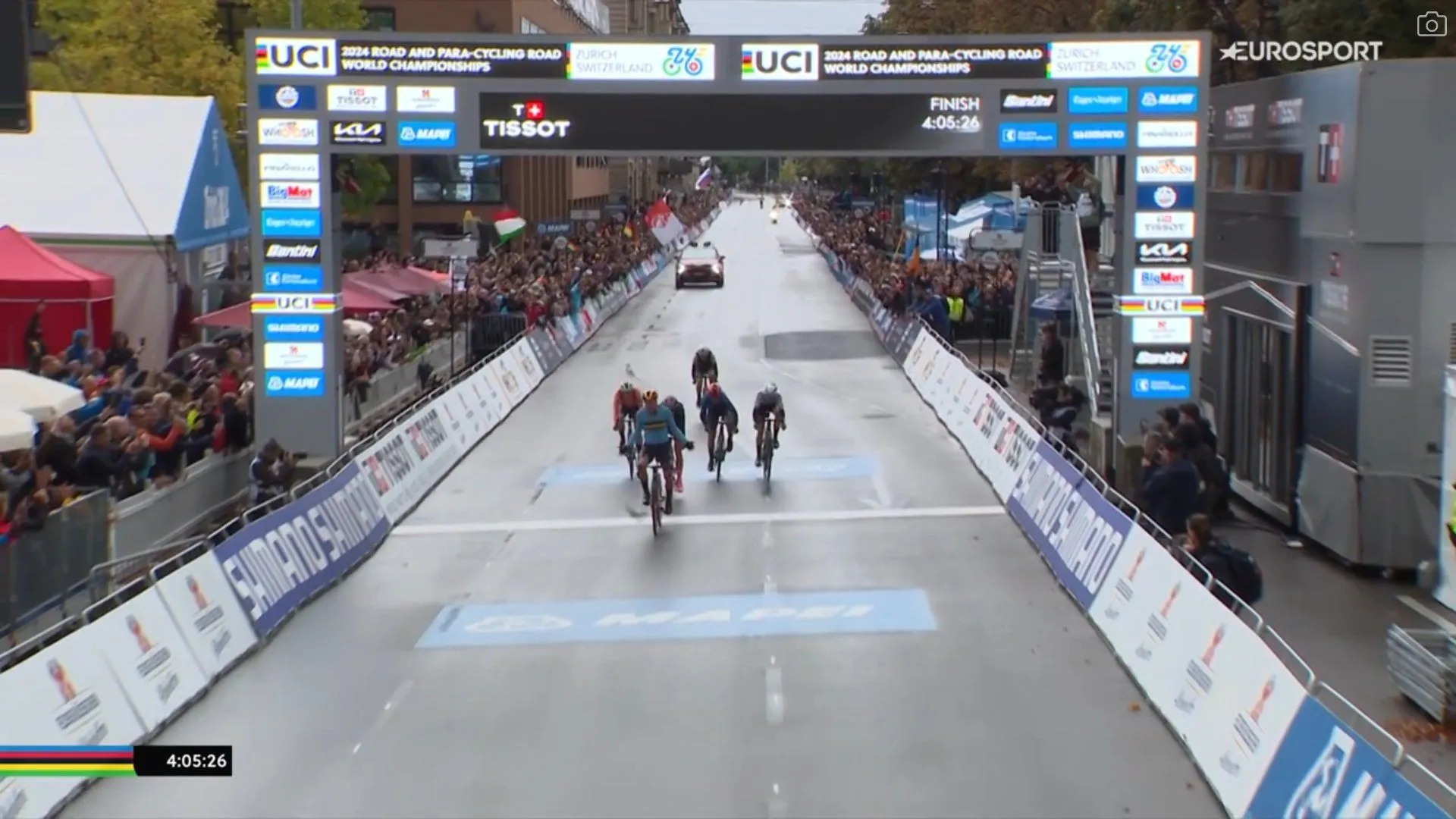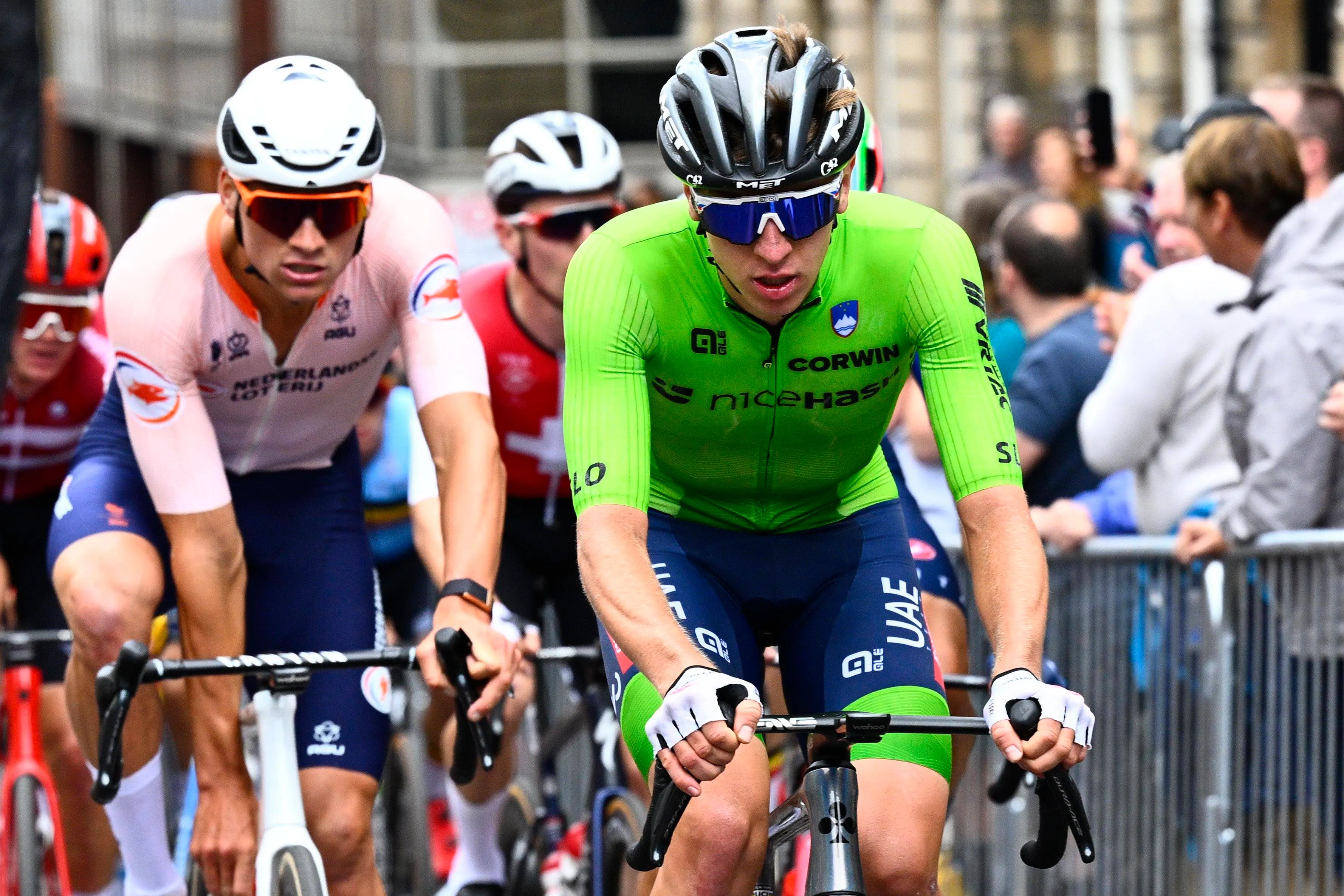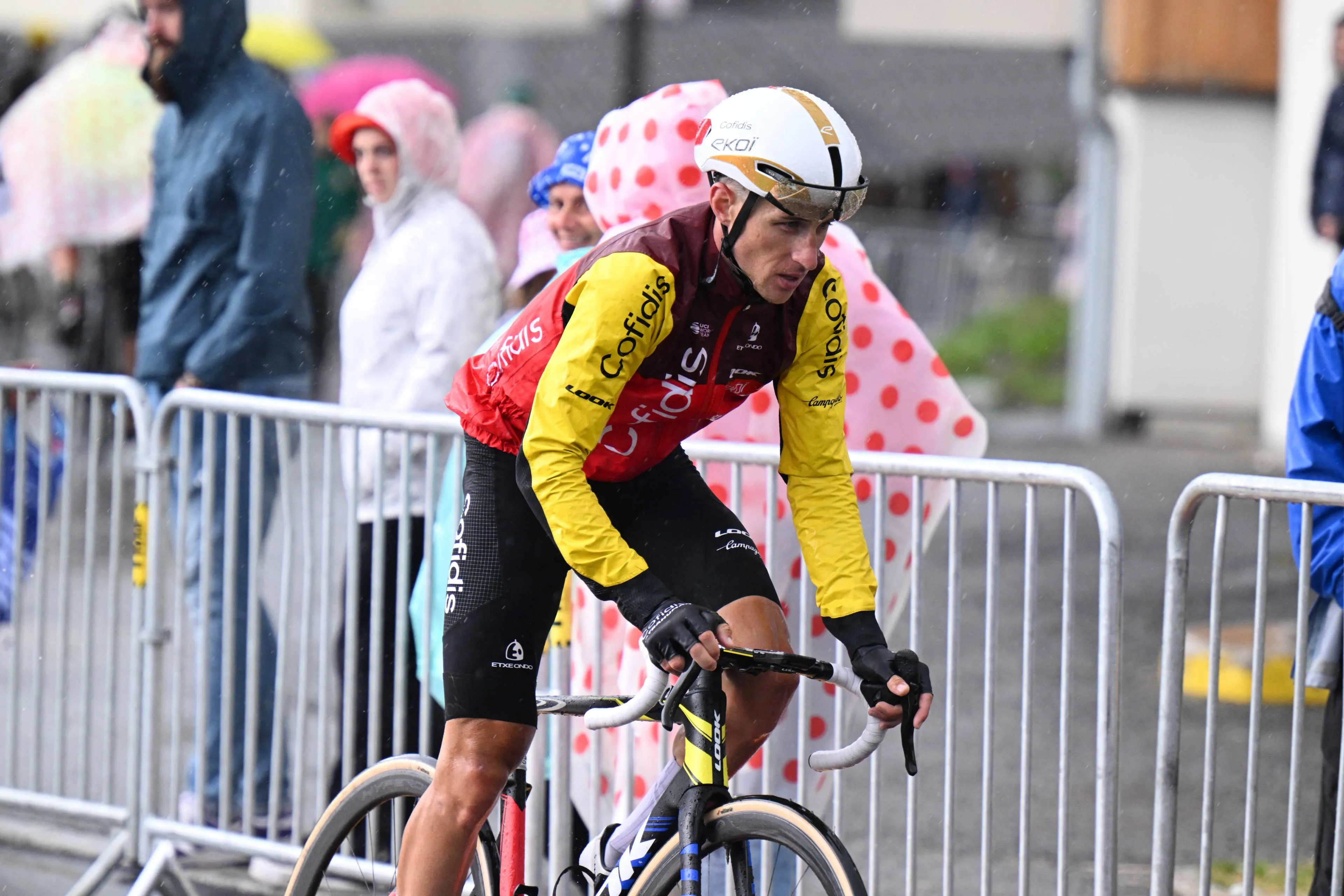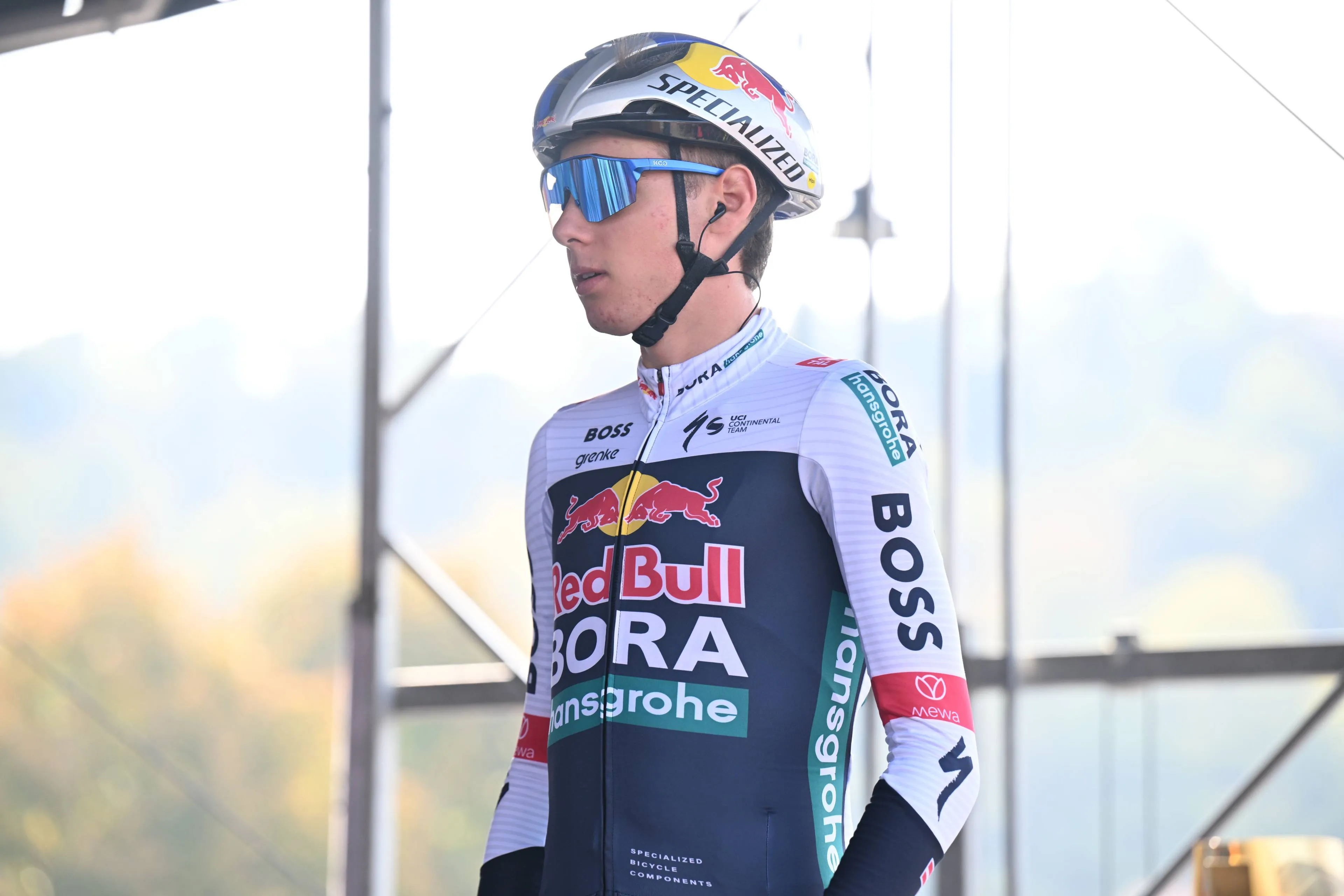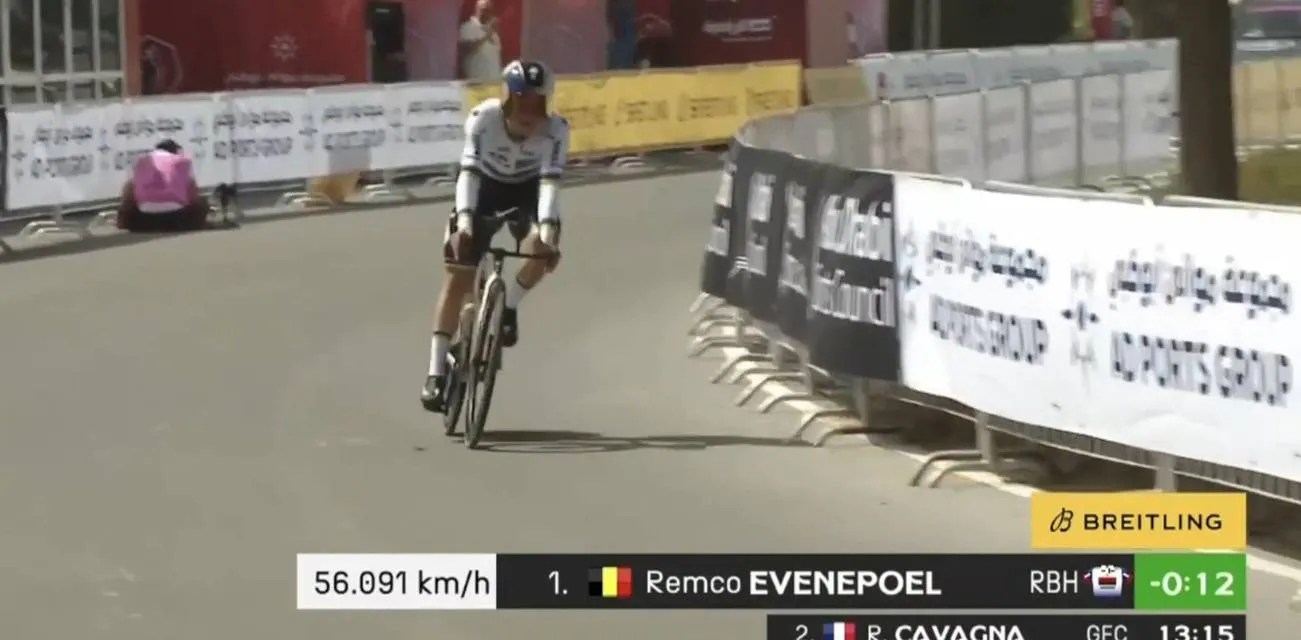The Triple Crown: Tadej Pogacar is hunting history at the World Championships
CyclingSaturday, 28 September 2024 at 20:00
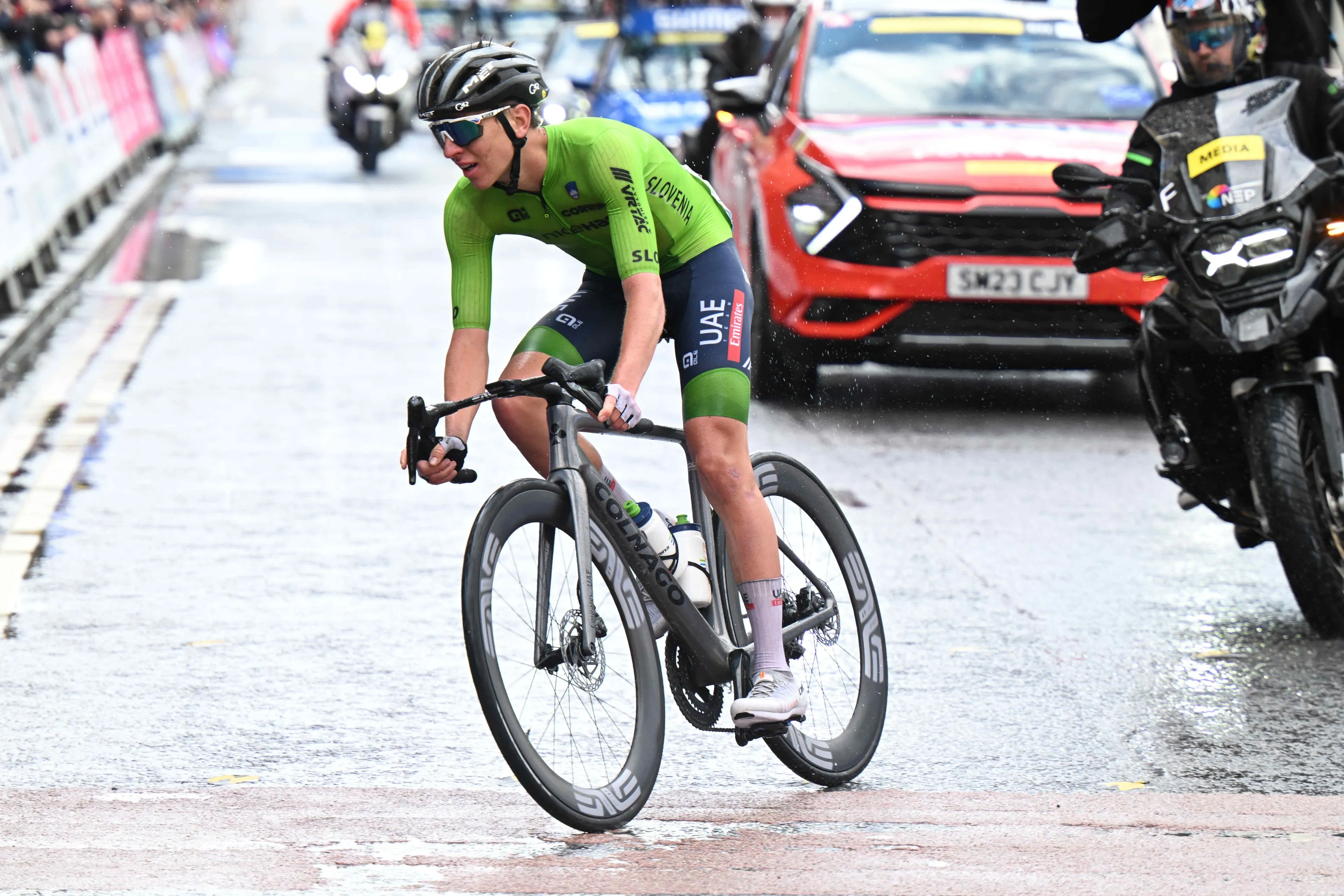
Tadej Pogacar is no stranger to making history. In 2024, the
Slovenian star has taken his already extraordinary career to new heights,
cementing his status as one of the greatest cyclists of his generation. He’s
won the Giro d’Italia in commanding fashion, leaving his rivals in the dust
with a jaw-dropping six stage victories. Just a few weeks later, Pogacar
triumphed in the Tour de France, picking up his third yellow jersey and once
again dominating the competition, including fellow superstars like Remco Evenepoel
and Jonas Vingegaard. In doing so, he became the first rider since Marco
Pantani in 1998 to win both the Giro and the Tour in the same year, a rare
double in modern cycling.
But for Pogacar, the season isn’t over yet. On the horizon
is another monumental challenge: the 2024 UCI Road World Championships in
Zurich on Sunday. If he can pull off a victory in the elite men’s road race, it
won’t just be another addition to his illustrious palmarès. It would complete a
feat that only two riders have ever achieved: the Triple Crown of Cycling.
Read also
The Course: A Brutal Test in Zurich
The Road Race at the World Championships is always a
prestigious affair, but this year’s course in Zurich stands out for its sheer
difficulty. At 274 kilometers in length and featuring 4,200 meters of climbing,
it’s a test that will push riders to their absolute limits. The route favours
climbers and classics specialists, and is widely regarded as the hardest world
championship course since the 2018 edition in Innsbruck, Austria, which
similarly rewarded pure climbing ability.
Read also
Mathieu van der Poel, the defending world champion, will
line up with ambitions of keeping his rainbow jersey, but the Zurich course
isn’t perfectly suited to his strengths. In contrast, it plays directly into
the hands of Pogacar, who excels in the kind of relentless climbs and gruelling
long distances that this year’s road race will present.
The course begins with rolling terrain before heading into a
series of punishing climbs, including some with double-digit gradients. It will
sap the strength of the peloton, as only the strongest climbers and riders with
supreme endurance will have anything left for the final kilometres. With such a
demanding profile, the race is likely to see attrition, leaving just a handful
of contenders fighting it out in the closing stages. For Pogacar, a rider who
has shown time and again that he thrives in races of attrition, this could be
the perfect platform for one final victory in what has already been an iconic
year.
The Triple Crown
Winning the Triple Crown in cycling is one of the sport's
most exclusive achievements. It refers to winning three of the most prestigious
titles in a single season: the Giro d’Italia, the Tour de France, and the World
Championships road race. To achieve the Triple Crown is to reach the pinnacle
of success in road cycling, as it requires not only the ability to dominate
over three weeks in both Grand Tours but also the versatility and stamina to
conquer the one-day test of the World Championships.
Read also
Only two male riders have ever completed the Triple Crown:
Eddy Merckx in 1974 and Stephen Roche in 1987. Both of these men are legends of
the sport, and their Triple Crown victories stand as crowning achievements in
their careers.
Merckx’s 1974 season is often considered the most dominant
in cycling history. He won the Giro in May, then added a fifth Tour de France
title in July before finishing off the year with a victory at the World
Championships in Montreal. His ability to win across multiple formats and
terrains—whether in mountainous stages, sprints, or time trials—earned him the
nickname "The Cannibal."
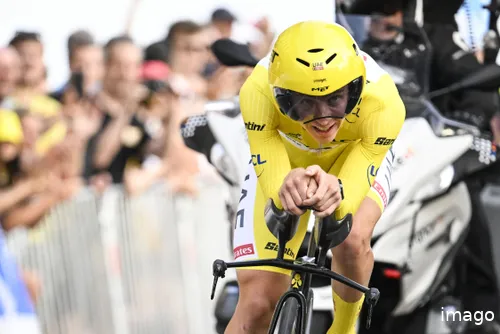
Tadej Pogacar at the 2024 Tour de France. @Imago
Stephen Roche’s 1987 campaign, while less dominant than
Merckx’s, was no less remarkable. After winning the Giro by the narrowest of
margins, Roche went on to stun the world by taking the Tour de France,
defeating Pedro Delgado and Jean-François Bernard. At the World Championships
in Austria, he secured his place in history by outsprinting his rivals to
secure the rainbow jersey for Ireland.
For Pogacar, joining this illustrious duo would solidify his
place among the very best in cycling history. A victory in Zurich would be a
fitting conclusion to what has already been one of the most spectacular seasons
in modern cycling.
Read also
Can Pogacar Do It?
Given his form this year, Pogacar is the overwhelming favourite
to win the World Championships and complete the Triple Crown. The sheer
dominance he displayed at both the Giro and the Tour is unparalleled in recent
memory, and his performances in stage races have already set him apart as the
most talented rider of his generation.
One of Pogacar’s greatest strengths is his versatility. He’s
not just a climber or a time trialist; he’s a complete rider who can excel in a
wide range of terrains and race formats. His ability to win six stages at both
the Giro and the Tour, which included mountaintop finishes and time trials, is
evidence of his all-round capability. That same versatility will serve him well
on the tough Zurich course, where endurance and tactical acumen will be just as
important as climbing ability.
Another factor working in Pogacar’s favor is his team. Slovenia
have brought a strong team to Zurich, including four time Vuelta winner Primoz
Roglic, who is a medal contender in his own right. Expect his teammates to set
a fierce pace on the climbs, thinning the peloton and eliminating many of
Pogacar’s rivals before the final showdown.
Read also
However, while Pogacar is the favourite, the World
Championships are notoriously difficult to predict. The one-day nature of the
race means that anything can happen, and a host of strong riders will be lining
up with ambitions of their own. Van der Poel will undoubtedly be motivated to
defend his title, while riders like Remco Evenepoel and Primoz Roglic will also
be gunning for the win. If Remco Evenepoel can replicated his performance from
the Olympic road race in Paris, then he could put a serious challenge towards
Pogacar’s hopes of the triple crown.
Then there’s the unpredictable nature of cycling itself. A
crash, a mechanical issue, or a perfectly timed attack from a rival could all
derail Pogacar’s quest for history. Yet if there’s one thing we’ve learned
about Pogacar, it’s that he thrives in the face of adversity. His tactical
intelligence, paired with his raw physical talent, has seen him overcome
challenges time and again.
A Moment of History Awaits
As Pogacar prepares to take on the world’s best in Zurich,
the stakes couldn’t be higher. Victory would not only cap off a season for the
ages but also place him in the pantheon of cycling legends alongside Merckx and
Roche. It would cement his legacy as the most versatile and dominant rider of
his generation and, perhaps, as one of the greatest ever to grace the sport.
In a year that has already delivered so much, Tadej Pogacar
is now on the verge of history. All eyes will be on him as he hunts down the
elusive Triple Crown at the 2024 World Championships.
Read also
claps 1visitors 1
Just in
Popular news
Latest comments
- Completly agree, Jan was in front of van gils, following Pidcock wheel, it was Van gils who tried to force his way through Jan and the barriers. Are they blaming Jan because he belongs to the richest team that win a lot?
 maria2024202418-02-2026
maria2024202418-02-2026 - Clickbait title, not reality-based. Yawn.itsent18-02-2026
- lame, but probably correctantipodeanpedalfan18-02-2026
- Van Gils rode like wanted to get crashed or way too over confident that he was going to overtake Jan before getting pinched. It was obvious were Jan was going/had to go and MVG had the whole road to give an inch so he would have a chance to overtake on the rightjad2918-02-2026
- Double book this showing with the Melania documentary and you might get 100 people to see it...total !frieders318-02-2026
- Simple solution...stay off the barriers since you might get closed out ! Christen's sprint was legal as he was trying to get into the slipstream of Pidcock.frieders318-02-2026
- I believe Remco now understands that he will have issues reaching the top step as long as Tadej is in the Tour, whiles he's a year junior to Tadej he has had his upper body rebuilt twice now from crashes over the last few years. I think he has a chance to win the Tour in a few more seasons, you can only prepare yourself as best you can and try. He said he needs to race some more one week stage races, he should, he can probably win them all. I also believe Remco should aim for another Vuelta if he comes out of the Tour in good form and maybe he should think about the Giro again for next season. This is potentially Tadej's fifth Tour win coming up this year, no one is going to derail that unless he falls off the bike or gets really sick.awp17-02-2026
- Not only will the great narcissist get his voice, but he'll benefit financially from this as well. Who says that cheating and lying your way to victory doesn't pay?
 santiagobenites17-02-2026
santiagobenites17-02-2026 - It'll make a good double feature with the Michael Jackson soft focus biopic.LumbarDeniro17-02-2026
- Yeah, whilst MVDP would never break a bone on the MTB... 😂Sexass17-02-2026
Loading
Write a comment
